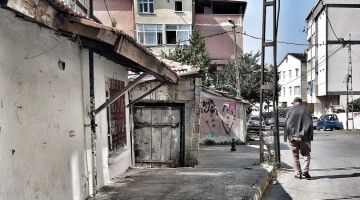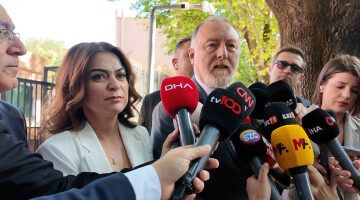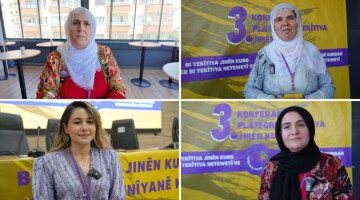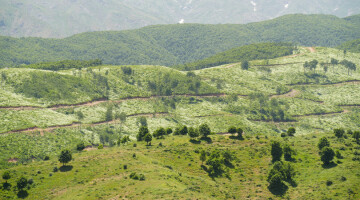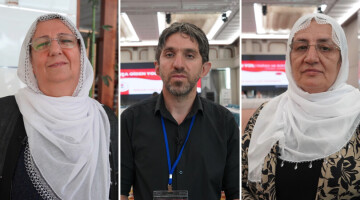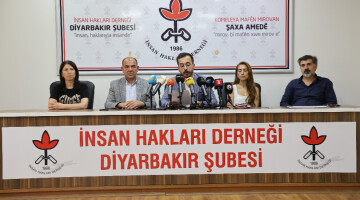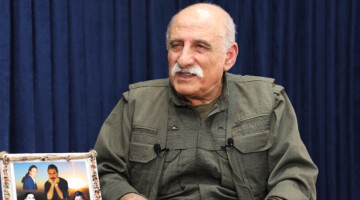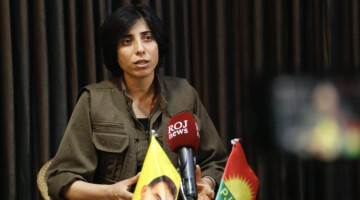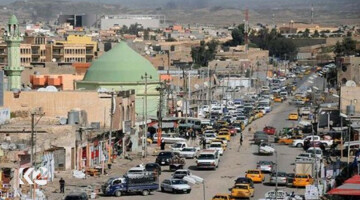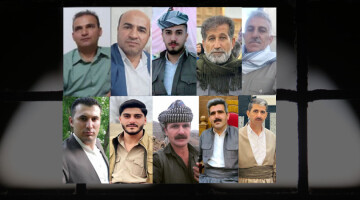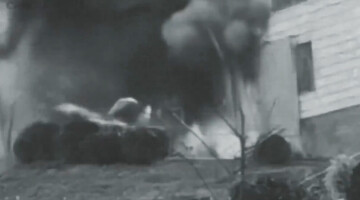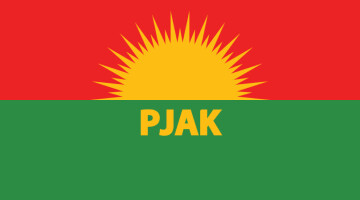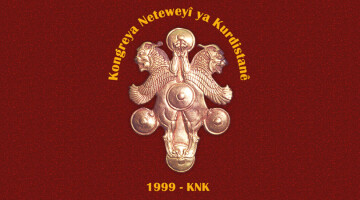The armed resistance based on the new guerrilla doctrine has the quality to create a historical turning point in the Kurdish freedom struggle. While the Turkish state relies on sophisticated war technology and quantitative superiority in the guerrilla-held Medya Defense Zones in southern Kurdistan (northern Iraq), the guerrillas have adapted through their restructuring process and are successfully fighting the army of NATO partner Turkey with creativity and determination. Internationalist guerrilla fighter Baran Nûjiyan also talks about this in the last part of the interview series "Şervanên Azadiyê".
"The enemy is trying with all its might in South Kurdistan in cooperation with the KDP to continue its dreams of occupation, to expand its borders," Nûjiyan stated. Especially in the regions of Avaşîn, Zap and Metîna, he said, it is still impossible to overlook the Turkish army's attempts to defeat the guerrillas "with all kinds of technical efforts, countless militias brought into its own ranks from surrounding countries, and increasingly with the use of chemical weapons." However, he said, one cannot speak of serious successes. "This is already evident, above all, in the use of chemical weapons. The enemy is falling into despair. The rebuilding of the guerrillas with new tactics and strategies slows down all the technology that the enemy brings up. And the friends in Zap, Metîna and Avaşîn have again set incredibly high standards in terms of resistance," the fighter explained.
"We are one with our idea and connected to our idea," Baran Nûjiyan continued. Especially in this phase, he said, this is shown again. “The enemy cannot achieve victory, as its opponent is the force of a society and sociality that, since the existence of the ruling structures, has repeatedly formed and reorganized itself, leading to uprisings, great battles, as well as heroic missions. This is a historical line we are in," Baran Nûjiyan said, describing this state of affairs. Here, he noted, it is particularly important to be aware of this as well:
"This is, of course, a source of strength and the legitimacy of it. These are not small interests, these are basic human rights that are at stake, basic needs and really the step towards naturalness. So it is only natural to defend them and to go into battle for them by all means. And this is the force that makes the friends develop resistance against all forms of attack and develop tactics and strategies under the most difficult circumstances and succeed. Every step that is taken - we see it this year alone - in the beginning, it was precisely the resistance in Gare, which leads to the fact that in other places, strength is again created. Of course, this also influences each other. In this situation that we're in, of course - and that's what I was really getting at - it's not something isolated that's happening in the mountains of Kurdistan. It is something that every person everywhere has to take a stand, be it in Alaska, South Africa or Australia. Because it's about the question: domination and oppression or free and social life? The bottom line is that we are forced to take a stand, and it is a question that concerns everyone. This is not an isolated event that is taking place here.
On the one hand, we have capitalist modernity, which is trying to defend itself by all means - here mostly in the form of the Turkish state, but of course also with the support of U.S. imperialism - which wants to manage its crisis by all means and stay on its feet, no matter what the cost. This is also evident in the way of fighting, the way of the enemy, the brutality of how it is proceeded. Be it in Afrin in the occupation - wherever you look, you see the examples. The unlimited use of chemical weapons shows that the enemy is willing to use any means. On the other hand, we are fighting for democratic modernity, that is, for social power, the power of self-determination. No one can talk their way out of this. It's important to take a position on this and to take a clear stand. Where do I place myself? Where do I stand on this?
There are many ways to take a stand and become active. Be it solidarity actions in different regions. But first of all, and this is important: to get to know each other, to reduce this distance, to become aware of what it is all about. To accept the philosophy of Abdullah Öcalan and to learn to understand what it is all about in depth. Because it is not just a regional conflict or a regional struggle that is being fought here. It is about humanity and humanity itself. It is a universal paradigm, it is about universal humanity. And it provides answers and the key and basis for all struggles in all kinds of countries. And with that, to have an argument, a discussion, to enter into discussion with the movement, diverse actions, to get to know the revolution, to approach the movement.
There are many writings from the movement, including German-language ones, especially many diaries of internationalists, especially those who fell in battle. These are all ways to learn about the struggle here. The point is to make the decision to draw the full consequence. And that is to say, to dedicate one's life to the struggle. From a European perspective, that sounds like sacrifice, but that's not the point. Everyone who takes this step and comes here sees that it is rather the liberation aspect - to liberate oneself as a human being. It's more of a helping hand that we receive. But this European approach makes you misunderstand that."
At the end of the talk, Baran Nûjiyan summarized in a call the many ways in which a sincere attitude to the war in Kurdistan, which is now running very much again, can look like: "Really taking a stand, obtaining and circulating information, keeping the conversation going about it, and likewise carrying out the basics and the depth in conversations, learning to understand, giving to understand. These are important points. What I can also say personally as an internationalist is the desire that we can also make this accessible to other people, that other people can also experience this happiness. Which just means participating and playing a role within this movement."

